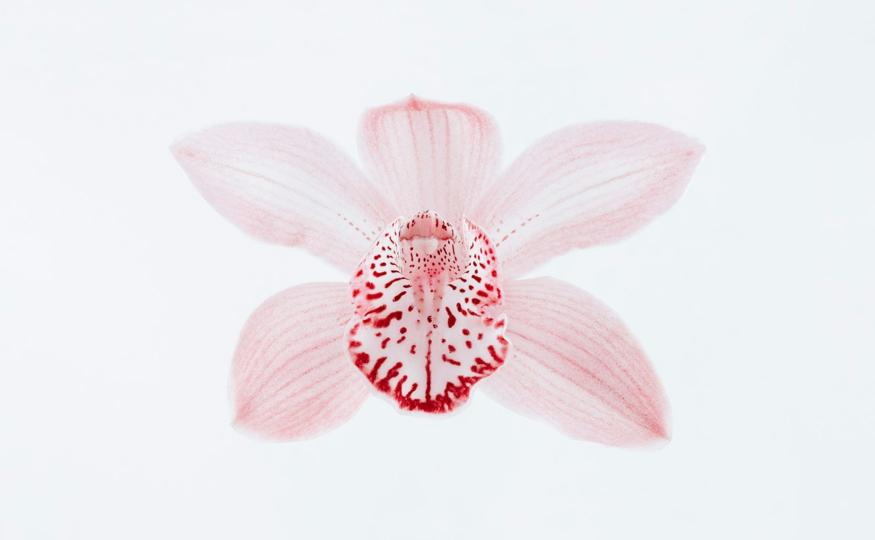
Flower history traces back to the dawn of humanity—long before bouquets and love notes, blooms carried deep meaning, marked life’s moments, and shaped cultures. From fossilized ancient blooms to age-old rituals filled with floral meaning, the story of flowers is as vibrant and layered as their petals. Ready to explore this fragrant journey through time? Let’s dive in.
🌸 The First Flowers: Nature’s Ancient Wonder
Fossil records show that flowers first appeared over 130 million years ago during the Cretaceous period. Among the earliest flowering plants identified is Archaefructus, a delicate aquatic bloom that grew in ancient China.
Before flowers evolved, plants mainly reproduced using spores (think ferns and moss). But when flowering plants arrived, they changed the game. These clever blooms developed bright colors and scents to attract pollinators like bees and butterflies—an evolutionary trick that worked brilliantly.
Fun Fact: The oldest known flower fossil, Montsechia vidalii, dates back roughly 130–125 million years and was found in Spain.
🏛️ Ancient Civilizations and Their Floral Obsession
Fast forward to human history, and we see that flowers were more than just decoration—they were sacred, symbolic, and often spiritual.
🌼 Egypt (c. 2500 BCE)
The ancient Egyptians loved flowers, especially the lotus, which symbolized rebirth and the sun. They adorned rituals, tombs, and ceremonies with floral garlands. The blue lotus was particularly prized for its intoxicating scent and connection to the divine.
🌷 Mesopotamia
Clay tablets show early floral references in Sumerian and Babylonian texts, indicating the use of flowers in medicine and worship. Temples were frequently decorated with sacred flower motifs.
🌹 Greece and Rome
The Greeks associated flowers with the gods. Roses were linked to Aphrodite, the goddess of love, and laurel wreaths symbolized victory. Romans used flowers in feasts, festivals, and even public games—talk about floral flair!
💐 Flowers in Eastern Cultures: Deep Symbolism and Art
🌸 China
In Chinese history, flowers weren’t just plants—they were philosophical symbols. The peony represented wealth and honor, while the plum blossom stood for perseverance and hope. Floral themes took center stage in poetry, artwork, and royal gardens.
🌺 Japan
No culture celebrates flowers quite like Japan. The Hanami tradition—admiring cherry blossoms—has blossomed for over a thousand years. The sakura (cherry blossom) represents the fleeting nature of life—beautiful, short-lived, and deeply moving.
✝️ Flowers in Religious and Spiritual Traditions
Flowers appear in nearly every major religion:
• Christianity: The lily symbolizes purity and resurrection, often linked to the Virgin Mary.
• Hinduism: The lotus represents divine beauty and is associated with several deities, including Vishnu and Lakshmi.
• Buddhism: The lotus again shines, symbolizing spiritual awakening and enlightenment.
Temples, altars, and sacred texts across cultures are full of floral references—proof that blooms speak a universal spiritual language.
🌷 The Victorian Language of Flowers (Floriography)
Let’s skip to the 1800s, where things get very poetic.
During the Victorian era, society was obsessed with floriography—a way of communicating feelings using flowers. Because direct expressions of love were frowned upon, people used flowers as secret messengers.
For example:
• Red rose = passionate love
• Yellow rose = friendship or jealousy (depending on context!)
• White lily = purity
• Violet = loyalty and modesty
Bouquets became coded love letters, with each flower and its arrangement delivering a silent but powerful message. Think of it as the OG version of texting—with petals!
🌸 Flowers in Art, Music, and Literature
Flowers have sparked endless artistic creations across the ages.
• Vincent van Gogh’s Sunflowers series remains one of the most iconic floral depictions in Western art.
• William Shakespeare used flower symbolism in many plays. Remember Ophelia in Hamlet, handing out rosemary and pansies?
• Claude Monet’s gardens at Giverny inspired his dreamy water lily paintings—true proof that flowers are more than just plants; they’re muses.
Even in today’s music and poetry, flowers symbolize love, loss, youth, and new beginnings.
🌼 The Modern Role of Flowers: From Romance to Revolutions
Today, we still use flowers to say what words sometimes can’t. Whether it’s sending sympathy, celebrating a birth, or asking someone to prom, flowers are our emotional translators.
But beyond gifts and gestures, flowers are now part of:
• Global industries (like floriculture and perfume)
• Cultural movements (e.g., the Flower Power movement of the 1960s)
• Sustainability efforts, as more people shift to local, seasonal blooms
And with the rise of eco-consciousness, dried flowers and “slow flowers” are making a comeback—proving that history does bloom in cycles.
🧠 Why Flowers Still Matter: The Science of Blooming Emotions
Turns out, science agrees—flowers make people happy. Studies show that receiving flowers:
• Instantly boosts mood
• Reduces stress
• Increases feelings of connection
• Enhances memory and creativity
So next time you’re thinking of a thoughtful gift, remember: flowers aren’t just pretty—they’re powerful. 🌺
🌷 The Bloom That Keeps on Giving: Why Flower History Still Matters
The history of flowers reminds us of something beautifully simple: humans have always needed beauty, symbols, and a way to express deep emotions.
From ancient tombs to TikTok bouquets, flowers remain an essential part of life’s big (and small) moments. They’ve witnessed our loves, losses, celebrations, and spiritual journeys.
That’s why a bloom is never just a bloom. It’s a story. It’s history. It’s the most powerful language without words.
💐 Bring a Piece of History Home with inbloom.id
At inbloom.id, we honor this rich floral legacy by crafting flower arrangements that carry deep meaning, emotion, and beauty. Whether you’re sending love, comfort, or celebration, our expertly designed bouquets speak volumes.
🌼 Explore our fresh blooms, same-day delivery, and signature bouquets—all designed to make history again in someone’s heart.
👉 Order now at inbloom.id and say it with timeless blooms.
